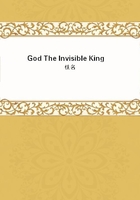
第23章
"The revolt which burns in so much of the abler literature of our time is an unselfish revolt, or non-selfish revolt: it is an outcome of that larger spirit which conceives the self to be a part of the general social organism, and it is therefore neither egoistic nor altruistic. It finds a sanction in the new intelligence, and an inspiration in the finer sentiments of our generation, but the glow which chiefly illumines it is the glow of the great vision of a happier earth. It speaks of the claims of truth and justice, and assails untruth and injustice, for these are elemental principles of social life; but it appeals more confidently to the warmer sympathy which is linking the scattered children of the race, and it urges all to co-operate in the restriction of suffering and the creation of happiness. The advance guard of the race, the men and women in whom mental alertness is associated with fine feeling, cry that they have reached Pisgah's slope and in increasing numbers men and women are pressing on to see if it be really the Promised Land.""Pisgah--the Promised Land!" Mr. McCabe in that passage sounds as if he were half-way to "Oh! Beulah Land!" and the tambourine.
That "larger spirit," we maintain, is God; those "impulses" are the power of God, and Mr. McCabe serves a Master he denies. He has but to realise fully that God is not necessarily the Triune God of the Catholic Church, and banish his intense suspicion that he may yet be lured back to that altar he abandoned, he has but to look up from that preoccupation, and immediately he will begin to realise the presence of Divinity.
3. GOD IS AN EXTERNAL REALITY
It may be argued that if atheists and agnostics when they set themselves to express the good will that is in them, do shape out God, that if their conception of right living falls in so completely with the conception of God's service as to be broadly identical, then indeed God, like the ether of scientific speculation, is no more than a theory, no more than an imaginative externalisation of man's inherent good will. Why trouble about God then? Is not the declaration of a good disposition a sufficient evidence of salvation? What is the difference between such benevolent unbelievers as Professor Metchnikoff or Mr. McCabe and those who have found God?
The difference is this, that the benevolent atheist stands alone upon his own good will, without a reference, without a standard, trusting to his own impulse to goodness, relying upon his own moral strength. A certain immodesty, a certain self-righteousness, hangs like a precipice above him; incalculable temptations open like gulfs beneath his feet. He has not really given himself or got away from himself. He has no one to whom he can give himself. He is still a masterless man. His exaltation is self-centred, is priggishness, his fall is unrestrained by any exterior obligation. His devotion is only the good will in himself, a disposition; it is a mood that may change. At any moment it may change. He may have pledged himself to his own pride and honour, but who will hold him to his bargain? He has no source of strength beyond his own amiable sentiments, his conscience speaks with an unsupported voice, and no one watches while he sleeps. He cannot pray; he can but ejaculate.
He has no real and living link with other men of good will.
And those whose acquiescence in the idea of God is merely intellectual are in no better case than those who deny God altogether. They may have all the forms of truth and not divinity.
The religion of the atheist with a God-shaped blank at its heart and the persuasion of the unconverted theologian, are both like lamps unlit. The lit lamp has no difference in form from the lamp unlit.
But the lit lamp is alive and the lamp unlit is asleep or dead.
The difference between the unconverted and the unbeliever and the servant of the true God is this; it is that the latter has experienced a complete turning away from self. This only difference is all the difference in the world. It is the realisation that this goodness that I thought was within me and of myself and upon which Irather prided myself, is without me and above myself, and infinitely greater and stronger than I. It is the immortal and I am mortal.
It is invincible and steadfast in its purpose, and I am weak and insecure. It is no longer that I, out of my inherent and remarkable goodness, out of the excellence of my quality and the benevolence of my heart, give a considerable amount of time and attention to the happiness and welfare of others--because I choose to do so. On the contrary I have come under a divine imperative, I am obeying an irresistible call, I am a humble and willing servant of the righteousness of God. That altruism which Professor Metchnikoff and Mr. McCabe would have us regard as the goal and refuge of a broad and free intelligence, is really the first simple commandment in the religious life.
4. ANOTHER RELIGIOUS MATERIALIST
Now here is a passage from a book, "Evolution and the War," by Professor Metchnikoff's translator, Dr. Chalmers Mitchell, which comes even closer to our conception of God as an immortal being arising out of man, and external to the individual man. He has been discussing that well-known passage of Kant's: "Two things fill my mind with ever-renewed wonder and awe the more often and deeper Idwell on them--the starry vault above me, and the moral law within me."From that discussion, Dr. Chalmers Mitchell presently comes to this most definite and interesting statement: